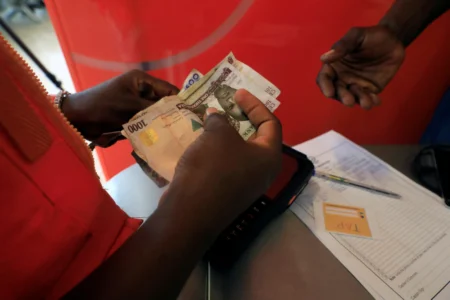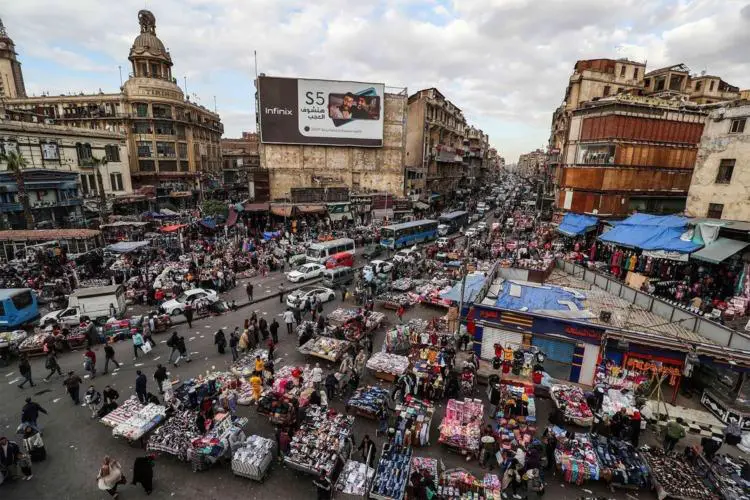- Africa’s new dawn: the rising role of digital and AI in agriculture
- Can Dangote Refinery Transform Africa Energy Ambition
- Gallup Survey: 80 per cent of Kenyan Workers Are Disengaged and Seek New Opportunities
- Madagascar Man Freed from 5KG Tumor After 15-Year Struggle
- How women in Africa are perceived and treated
- Sugar consumption in Kenya to Increase to 1.23 Million Tonnes
- Can Somalia and Turkey Oil deal Bring Change in Somaliland
- Remittances to Kenya dropped to $371.6 million in June, marking a six month low
Browsing: OECD
- African countries realize $1.85 billion in revenue through voluntary disclosures, information exchange.
- World Bank study suggests information-sharing mechanisms will boost African countries’ tax revenues.
- The report highlights the African country’s $11.6 million tax collection using common reporting standard data.
A new report shows African countries can boost revenue by disrupting Africa’s secret dance with tax evasion. Through initiatives such as voluntary disclosures, and the establishment of information exchange mechanisms, economies in Africa can poison the continent’s passion with tax evasion. Coupled with measures such as robust offshore investigations, African countries have successfully generated additional revenues amounting to a substantial $1.85 billion.
Eliminating tax evasion to build wealth
These revelations are contained in the 2023 Tax Transparency in Africa progress report presented during the 13th meeting of the Africa Initiative in Cape Town.
African countries are adopting these initiatives to combat tax evasion, advance transparency, and improve their capacity to
While the Organisation for Economic Co-operation and Development (OECD) reports US$300 billion of annual investments in developing countries, only 20 per cent of the implementing practitioners have the sufficient data required to successfully meet the needs of the communities they work with.
According to Rural Senses CEO Yau Ben-Or, this is because most projects are still built solely on quantitative data.
“Although necessary, quantitative data doesn’t reveal what success looks like for the local communities. Existing tools for the collection and analysis of qualitative data are time-consuming, costly and often introduce biases and ambiguous results,” Ben-Or notes.
As a result, important insights are missed, organisational learning is compromised, and projects’ sustainability is limited, he added.…
On the brighter side, this trade potential could double if African countries address challenges in infrastructure and corruption which have continually hampered the ‘Africa rising’ narrative.
By making Africa the world’s largest trade area, the AfCFTA is expected to further improve Africa’s bargaining power with the rest of the world. This is with regard to the quality of goods produced as well as market entry of imported goods. …
Economists define a recession as a subdued growth that lasts at least six months and goes for another 18 months while depression can last up to a decade. The global economy was already heading to a recession even before the outbreak and spread of COVID-19.
What has followed is global market players and governments pumping millions of dollars to contain the spread of the virus that has Wuhan city and its epicenter. The US and Europe have already announced setting up of special kitty to treat, contain and mitigate the effects of the virus both as a disease as well as the economic heat that comes with the disease.
China, the second-largest economy in the world and Italy- Europe’s third-largest economy and 8th globally- have been severely affected by cities like Rome remaining ghost-towns as economic and commercial activities come to a halt. There is a growing fear that the …
South Korea has managed to maintain its first position on 2018 Bloomberg Innovation Index for the fifth consecutive year.
The 2018 Bloomberg Innovation Index results published on January 22, 2019 which compiles the index based on data from sources including the World Bank (WB), International Monetary Fund (IMF) and Organization for Economic Co-operation and Development (OECD), credits South Korea`s top ranking to Samsung. The electronics giant is South Korea`s most valuable company and has received more US patents than any company other than IBM since the start of the millennium.
This innovation trickles down the supply chain throughout South Korea`s economy. It was divided into seven assessment categories namely, research and development (R&D), manufacturing, Hi-tech density showing the number of domestic high-tech companies, tertiary efficiency showing the total enrollment in tertiary education, research personnel and activity showing resident patent filings, total patent grants and patents in force per million population.…









